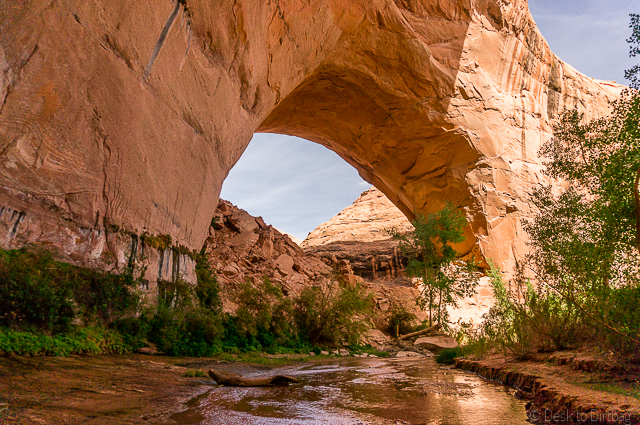
Desire to suffer, water levels, or possession of a packraft are all factors that might determine your trip in Coyote Gulch. This guide is not exhaustive on the possible ways to link these access points. Trailhead access points and route options are discussed below but Coyote Gulch’s access points and the larger area provide myriad opportunities to find the route that fits what you’re looking for. The shortest way to access all the most notable features of the canyon is the technical Crack-in-the-Wall to Sneak Route Loop. The longest possible variation would be doing an out-and-back hike from the Dry Fork Trailhead, which would total over 45-miles. Trailheads can be used to access Coyote Gulch as an out-and-back hike or using a shuttle. This guide describes multiple routes to explore Coyote Gulch. These areas necessitate respect in traveling through commensurate with the awe Coyote Gulch views elicit given the fragile resources present. The routes through Coyote Gulch described below travel through some of the finest canyon country ecosystems in Southern Utah, lush with vegetation and wildlife, natural bridges and arches, waterfalls, and cultural sites. Several access points provide a choose-your-own-adventure experience depending on the mileage and challenge you’re looking for.
COYOTE GULCH HOW TO
You have numerous choices on how to approach Coyote Gulch.Ĭoyote-gulch-red-well-to-40-mile-ridge DownloadĬoyote Gulch is a tributary canyon of the Escalante River in South-Central Utah running for slightly over 20 miles from the top (near Dry Fork) to the bottom where it meets the Canyon of the Escalante River.

Some route variations require a shuttle between trailheads.
COYOTE GULCH FREE
Though permits are currently free and either self-filled-out at the trailheads or picked up at the Escalante Interagency Visitor Center, keep an eye on the latest regulations involving trips in Coyote Gulch. Permits are required for Coyote Gulch in addition to several canyon-specific regulations.Coyote Gulch access lies down Hole-in-the-Rock Road, which is washboarded with possible washouts.



 0 kommentar(er)
0 kommentar(er)
